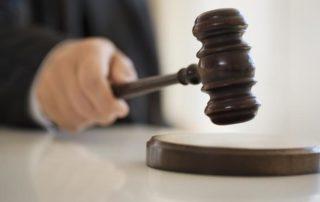Chapter 7 Bankruptcy Questions – Part One
At Phoenix Fresh Start Bankruptcy Attorneys, we hear questions about Chapter 7 bankruptcy every day. Over the course of my next few posts, we will be addressing some of those questions.
What is Chapter 7 bankruptcy?
Chapter 7 eliminates most unsecured debt and gives you a second chance to reset your finances and give you a meaningful fresh start. The whole Chapter 7 process normally lasts about 90 to 120 days from filing to discharge. The attorneys at Phoenix Fresh Start Bankruptcy Attorneys, LLP have substantial experience handling both simple and complex Chapter 7 bankruptcy cases.
In Chapter 7, you are able to maintain possession of certain “exempt” assets, up to a specific value amount. Prior to filing a real review of your assets and the exemptions available to you is part of our filing process. Phoenix Fresh Start Bankruptcy Attorneys, LLP always offers “exemption planning” to help you retain as much property as possible.
In a Chapter 7 bankruptcy, a Trustee is appointed to review your financial affairs and assets. The Trustee has the ability to sell assets not fully covered by allowed exemptions. If the Trustee decides that there aren’t any assets to sell, the case is reported as a “no asset” case and it is closed. The Bankruptcy Court will issue your discharge about 60-90 days later. Normally, the debts listed in your bankruptcy petition are discharged and the creditors are barred from attempting to collect from you again.
Will I be able to Keep My Stuff if I File for Chapter 7 Bankruptcy?
You can keep your assets to the extent the equity in the assets is within the exemption allowances available under the law to debtors. In most cases, clients are able to retain their personal belongings, including their homes, cars, and all household goods. It’s really not the value of the asset but the amount of equity in it. For example, If you own a $50,000 car but you $48,500 on it, the bankruptcy Trustee isn’t going to sell it because there is only $1500 in equity in the car and the Arizona vehicle exemption protects that amount in full.
Can I Sell or Transfer My Stuff before I File Chapter 7 Bankruptcy?
Don’t do it. If you give away, sell for less than fair value, or transfer an asset to someone before you file for bankruptcy, the bankruptcy Trustee may be able to undo that transfer, take away any exemption that might have protected it and sell it off. For example, you own a car worth $8,000 and give it away to a family member before filing. If you hadn’t transferred it, the trustee could have sold it off, but he would have had to write you a check for $1500, the amount of your exemption. Because you tried to give it away, the Trustee can now sell it off and give you nothing.
If you have already transferred property you should speak with an attorney at Phoenix Fresh Start Bankruptcy Attorneys, LLP to figure out whether any steps can be taken to undo the harm you may suffer because of an improper transfer. Sometimes these transfers can be undone. Call us today.
Chapter 7 Bankruptcy Questions – Part Two
At Phoenix Fresh Start Bankruptcy Attorneys, we hear questions about Chapter 7 bankruptcy every day. This is the second in a series of post where we will be addressing some common Chapter 7 bankruptcy concerns.
I am in a Bad Way but I Have Already Filed. Can I file again?
Provided that you have already filed Chapter 7 Bankruptcy and actually obtained a discharge, Chapter 7 again if eight years have passed since the date you filed your last case.
If you aren’t eligible for Chapter 7, you can still file a Chapter 13 after receiving a Chapter 7 discharge, but you won’t receive an actual discharge of your debts unless four years have passed since the date you filed the Chapter 7.
Even if the four years haven’t passed, you can still file Chapter 13 and get many of its benefits, including stopping foreclosures and garnishments and keeping your creditors away from you. Many of our clients “park” in this kind of Chapter 13 until they are eligible again to get a discharge in a Chapter 7 or Chapter 13 case. Once they are eligible, they dismiss their non-eligible case and file a discharge-eligible one.
Will a Chapter 7 Get Rid of All My Debts?
Chapter 7 does not eliminate all debts. Chapter 7 is a great tool for discharging unsecured debts like medical bills, repos, pay day loans and credit card debt. Other debts, however, like student some kinds of taxes, student loans are rarely eliminated. Likewise, debts stemming from criminal acts like driving under the influence of intoxicants generally will not be eliminated in Chapter 7.
Debts incurred through false pretenses or fraud may not be eliminated in Chapter 7. Chapter 13 can, however, discharge many debts that Chapter 7 will not. You should meet with an attorney at Phoenix Fresh Start Bankruptcy Attorneys, LLP to review the nature of your debts and which bankruptcy chapter is the best tool for you.
Is the Chapter 7 Trustee Going to Sell Off My “Non-Exempt” Property?
The Chapter 7 Trustee is only interested in a property that the Trustee can liquidate to distribute proceeds to pay unsecured creditors. If you own a vehicle worth $5,000, and you still owe $5,000 to the lender, the Trustee won’t touch the vehicle because he would have to pay all of the sale proceeds to the auto lender and there would be nothing to hand to the unsecured creditors.
The Arizona legislature has created certain “exemptions” to protect your real and personal property. Exemptions are a dollar value in certain property that is protected from all of your creditors, including a bankruptcy Trustee. If the value of your property is within the exemption limits, the Trustee will not take and sell the “exempt” property.
One of the services that Phoenix Fresh Start Bankruptcy Attorneys, LLP can provide to you is a review of your assets and the exemptions available to protect them. Phoenix Fresh Start Bankruptcy Attorneys, LLP can also help you with exemption planning to help you preserve as much of your property as possible during the bankruptcy process.
Chapter 7 Bankruptcy Questions – Part 3
Below is the third installment of questions commonly raised by Arizonans about Chapter 7 Bankruptcy. Because each situation is different, the best thing you can do if you have questions is meet with an attorney at Phoenix Fresh Start Bankruptcy Attorneys to discuss all of your options and alternatives.
Will Chapter 7 Bankruptcy Stop the Lawsuit That Was Filed Against me?
Chapter 7 will stop a lawsuit in its tracks. If you are being sued, bankruptcy may be a better and cheaper way to deal with the lawsuit. In Arizona, a Chapter 7 bankruptcy will generally be much more affordable than fighting a collections action. Moreover, chapter avoids the entry of judgment.
The last things you need are a judgment lien recorded on your home, your bank account emptied or your wages garnished. Chapter 7 bankruptcy stops all of these things from happening. If you have a lawsuit pending in Maricopa County, speak to an attorney at Phoenix Fresh Start Bankruptcy Attorneys about filing a Chapter 7 bankruptcy before judgment is entered.
Will Chapter 7 Bankruptcy Stop Foreclosure or Repossession?
Chapter 7 Bankruptcy can stop foreclosure on your house or a repossession of your car. In most cases, an “automatic stay” arises by law when the instant a bankruptcy is filed. The “automatic stay” stops the foreclosure and garnishment processes.
Generally, Chapter 7 Bankruptcy is not the best tool for dealing with deficiencies on home and auto loans. Chapter 13 Bankruptcy is generally a much better tool for dealing with mortgages and car loans; however, if all you are looking for is just a little bit more time in your home or car, a Chapter 7 should get you at least another month or so.
I Can Only Afford the Monthly Minimum on My Cards, the Balances Keep Going Up, Can Chapter 7 Bankruptcy Help
The biggest scam out there is that you are current on your cards if you are making the monthly minimums. You aren’t current. You are paying the Vig to a loan shark not to break your legs. In exchange, the lender is making money selling you the delusion that you are current. The balances never go down and the credit card lenders keep making money off you.
If you are only paying the minimum required payment on your credit card bills each month (generally about 2% of the outstanding balance), and the interest rate is 20%, it will take you over twenty years to pay off a $10,000 debt. Is this really where you want to be? Filing a bankruptcy with Phoenix Fresh Start Bankruptcy Attorneys will eliminate these debts and allow you to get a meaningful fresh start.
Chapter 7 Bankruptcy Questions – Part 4
Below is our fourth installment in a series of posts regarding Arizona Chapter 7 Bankruptcy issues raised by Arizonans about Chapter 7 Bankruptcy. Since almost every situation is unique, the best thing you can do to get your questions answered is meet with an attorney at Phoenix Fresh Start Bankruptcy Attorneys to discuss all of your options and alternatives.
Will the Court Tell My Employer About My Chapter 7 Bankruptcy?
Unless your employer is also a creditor, or there is already a garnishment in place, there is no reason why your employer should be informed with respect to your chapter 7 bankruptcy filing. In any event, an employer is legally barred from discriminating against an employee because of the employee’s bankruptcy filing. Phoenix Fresh Start Bankruptcy Attorneys will make certain that all of your rights are protected.
Your employer may, however, discriminate against you if you let them know that you intend to file bankruptcy. So keep your plans to yourself.
How Stop the Creditor Calls?
As soon as you hire Phoenix Fresh Start Bankruptcy Attorneys as your attorneys, you can start referring all of your creditor calls to our office, and we can take them from here on out. While there is the occasional wacko out there who just got out of prison and is now working as a “collector” out of some basement “office” in New Jersey and will not get the point, most creditors that we deal with are happy to get your file off their desks. As soon as we verify that we represent you, they take you off their auto-dialer.
How Do I Rebuild My Credit after a Chapter 7 Bankruptcy?
While a Chapter 7 Bankruptcy may be legally reported on your credit report for up to 10 years, who cares? The reality is that you can begin to reestablish your credit immediately after your bankruptcy discharge. Our firm actually pays a company to help you with educational materials and guidance to help you really ramp up your score once your case is done. We offer their services at no additional cost to you.
Lenders consider many factors in their credit decisions, but the most important of all factors that they will consider is your debt-to-income ratio. Generally, because bankruptcy eliminates all your unsecured debt, your credit score often improves upon the filing of a bankruptcy because of the elimination of debt.
Phoenix Fresh Start Bankruptcy Attorneys takes a holistic approach to bankruptcy. We think filing is about more than just moving entries from column A to column B. We think bankruptcy really should be about you returning to the financial mainstream. Following up on the free educational opportunities we offer after discharge is a great way to make that happen.
Can I File Chapter 7 Bankruptcy on Some of My Creditors but Not Others?
No. Legally you must list all of your creditors, including family and friends, on your bankruptcy schedules. In fact, a willful failure to list a debt could result in the denial of your entire bankruptcy discharge. At the same time, You are not barred from voluntarily paying certain debts after your Chapter 7 Bankruptcy case has been filed. Phoenix Fresh Start Bankruptcy Attorneys can explain how you can legally repay any debt you want after your bankruptcy is done.
Who will Know about My Chapter 7 Bankruptcy?
Parties who receive notice of the bankruptcy are the Bankruptcy Court, the IRS, and the Arizona Department of Revenue and of course your creditors. Your Bankruptcy filing is a public record, so anyone who wants to do some digging could find out about your case. Many people believe that notices of all bankruptcies are printed in the newspapers, but that is no longer the case.
Chapter 7 Bankruptcy Questions – Part 5
Below is our fifth blog post in a series of blog posts regarding Arizona Chapter 7 Bankruptcy. Since almost every case is different, the best thing you can do to get your questions answered is meet with an attorney at Phoenix Fresh Start Bankruptcy Attorneys to determine the next logical steps.
What Happens to My Bank Account in Bankruptcy?
In Arizona, there are exemptions that can be used to protect the contents of your bank account at the time of filing. These exemptions are not terribly generous so some planning is almost always in order regarding timing the filing of your Chapter 7 Bankruptcy. Another issue with bank accounts is whether you have an account with a bank where you also have a credit card balance.
Many banks will shut down your account on the date of filing and apply the proceeds to the balance of your credit account with that institution. If you do owe money to your bank and you plan on including that debt in bankruptcy, it is probably time to start banking somewhere where you do not have a credit relationship. Doesn’t mean you have to go into your credit union and close the account, it just means it is probably time to have your paycheck deposited somewhere else.
What Happens To Co-Signers Of Debt In My Bankruptcy?
A Chapter 7 bankruptcy releases you from your debts, but it does not release your co-signers. Creditors will demand payment from your co-signers if you don’t pay. You can protect the co-signers by continuing to pay the debt after your discharge (even though you are not obligated to), or you can file a Chapter 13. In a Chapter 13 bankruptcy, a creditor can often be barred from collecting from you while you repay the debt through the Chapter 13 plan.
Do I Have To Go To Court?
You must attend the first meeting of creditors and we will represent you there. This meeting is held in a hearing room used by the bankruptcy trustees (not a courtroom). The trustee will normally ask you pretty simple questions regarding your bankruptcy filing. While creditors are welcome to attend and ask you questions, the reality is that they rarely appear. Your attendance at this hearing is mandatory and failure to show up can result in dismissal of your case.
We are always happy to provide our clients with lists of the potential questions that a trustee might ask at a hearing. Generally, we advise getting to the hearing a little early to watch a few of the hearings(they normally last about ten minutes) so that by the time your hearing rolls around you are anticipating all the questions.
Are there alternatives to bankruptcy?
While there are alternatives to filing bankruptcy include debt consolidation companies and entering into settlements with your creditors.
Debt consolidation services try to work with your creditors in an attempt to get you a better interest rate or a lower monthly payment. The problem is that they are rarely able to get them all on board. Out of ten creditors, five will agree, three will take a wait and see approach and two will never give in. All too often, we see debtors hire these companies only to get sued some months later by one ore more of their creditors. The other problem is that this option doesn’t do your credit score any favors. In most cases, the bankruptcy filer is going to have a better credit score a year from now than the person who entered into a consolidation.
You can negotiate with your creditors to settle your bill for less than you owe. This can raise a tax issue where the IRS may construe the amount that your debt was reduced as income. Frankly, these settlements are elusive. Generally, the discounts on principal really are available where you have the ability to make large lump sum payments. If you end up settling on a long monthly stream of payments, do keep in mind that you aren’t making any progress on building up your credit score.
Phoenix Fresh Start Bankruptcy Attorneys is always available to provide advice about your specific situation before you file. We look forward to meeting with you.







